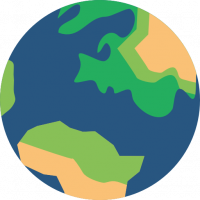
The project protects and restores over 140,000 hectares of peatland ecosystems in Indonesia by helping local people build sustainable sources of income through agriculture, agro-forestry, eco-tourism and aquaculture. This prevents the conversion of the area to industrial plantations of acacia, a tree which is commonly used for flooring. Conversion through forest clearance, draining and burning of the underlying peat would release the large carbon and methane stored by the area, as well as destroy the rich biodiversity. Carbon finance funds activities helping residents to make a living from non-timber forest products like rattan, honey, coconut and jelutong, fire prevention, eco-tourism, canal management and sustainable fisheries.
Sustainable Development Goals: In addition to delivering emissions reductions to take climate action (SDG 13), the project delivers several other benefits including:

